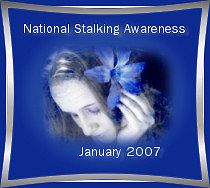Sobel noted that many offenders are simply trying to resume some semblance of a normal life once out of prison.
"Lifetime monitoring would erase the concept we have of people paying their debts to society and moving on in an equal footing," he said.
But others say it's better to be safe than sorry.
Republican state Sen. Matt Bartle of Missouri has sponsored a bill that would cast a wider net over those who would be tracked, including repeat offenders who have committed crimes such as exposing oneself to a child. The bill would also impose much stronger penalties for sexual offenses, such as requiring the individual to wear a tracking device even after the sentence and parole time have been completed.
"I think the general public is really not terribly confident that we're getting it right when it comes to pedophile's -- that this individual, case-by-case approach is leading to some very horrific situations," Bartle said.
'Jessica's Law' Calls for Offender Tracking
As of March, at least 17 states saw one or more bills introduced employing the GPS tracking of sex offenders, according to the National Council of State Legislatures. States such as Ohio, Oklahoma and Florida allow lifetime tracking of habitual offenders.
Florida began requiring mandatory lifetime GOP tracking for those convicted of sex crimes against children 11 and younger after the March 2005 murder of 9-year-old Jessica Lunsford by a convicted sex offender living nearby. The law also mandates a 25-year prison sentence for many offenders who commit crimes against kids.
Wisconsin last month extended lifetime GPS monitoring to serious and repeat child predators, while California is pushing a version of "Jessica's Law" on the November ballot that would mandate lifetime GPS tracking for every sex offender leaving prison.
On May 15, California Gov. Arnold Schwarzenegger created a task force to focus on policies for electronic surveillance of sex offenders. His recent budget has requested $8 million for Sexual Assault Felony Enforcement Task Forces (SAFE teams) designed to "reduce violent sexual offenses through proactive surveillance and arrest of habitual sex offenders."
In South Carolina, GPS tracking applies to offenses including "criminal sexual contact with a minor, lewd act upon a minor, solicitation of a minor," according to the NCSL. Monitoring would continue for the length of time the individual is required to be registered as a sex offender.
The Missouri Department of Corrections implemented a GPS program designed to track offenders who are at high risk for recidivism. Agency spokesman Brian Hauswirth said those chosen for the pilot will be required to complete 90 to 120 days of monitoring, and release will be based on "measurable positive adjustment by the officer." The program will target only higher-risk elements of the population, such as violent felons and sex criminals.
"Overall, we're very pleased with the pilot project. We've had some equipment issues. There are some ‘bugs' in the system that we're working to fix. The pilot project is the time to do that," Hauswirth said.
Recidivism is an argument often used by those advocating the use of GPS tracking. Many GPS experts say offenders are less likely to commit a similar crime if they know they are being tracked.
According to the Office of Justice Programs at the Justice Department, of the 9,691 male sex offenders released from prisons in 15 states in 1994, 5.3 percent were rearrested for a new sex crime within three years of release. Of those released who allegedly committed another sex crime, 40 percent perpetrated the new offense within a year or less from getting out of prison.
The Center for Recidivism Management at the Justice Department says underestimating, or underreporting, is higher in crimes of sexual violence than general criminal violence.
How the Technology Works
ISECUREtrac, a Nebraska-based company specializing in GPS offender tracking, says its systems can pinpoint offenders' locations within a 15-foot radius. ISECUREtrac (OTC) provides numerous states with GPS systems, and according to its Web site, "experience indicates that agencies that utilize GPS monitoring systems have increased offender compliance, enhanced their ability to monitor more offenders simultaneously, and have had the greatest impact on reducing re-offense."
GPS technology was developed in the 1960s by the military in order to provide accurate positioning of their equipment and troops. There are 24 satellites surrounding the earth that transmit signals to ground stations. GPS receivers use the signals to calculate locations. The Department of Defense calls the technology the Navigation System with Timing and Ranging, or NAVSTAR.
Offenders being tracked wear a wireless electronic device on their ankles the size of a deck of cards. Offenders must wear the waterproof ankle bands at all times and stay within a certain distance from the separate GPS transmitters, which can be carried with them or set on surfaces when at home or work.
Detractors, however, argue that the system can easily become cost-prohibitive if the criteria for monitoring are too broad. Various estimates of the cost of GPS programs run from about $7 to $9 a day per offender — significantly cheaper than incarceration, which ranges from approximately $40 to $100 per day, depending on the state and prison.
But the broader the scale of offenders being tracked, the higher the costs become for the state.
"With over a quarter of a million sex offenders, the government is going to need 100,000 employees to track them all, which is going to get very expensive," said Jack King, a spokesman for the National Association of Criminal Defense Lawyers, which recently announced the formation of a task force designed to study this issue.
King questioned whether the tracking systems could reduce the recidivism rate, which he said was approximately 7 percent.
"I would say it is way too soon to even speculate whether GPS monitoring of ex-offenders would help prevent recidivism. Preventing recidivism is a worthy goal, but who is to say whether a new technology works or not? One size never really 'fits all,' no matter what they say," King argued.
Critics fear that certain sex offenders, such as those with non-violent statutory rape convictions and those convicted of lesser sex crimes, might also become subject to intrusive surveillance.
Peggy Conway, the editor of the Journal of Offender Monitoring at the Civic Research Institute, thinks GPS works best as a deterrent for crime, but not as a punitive measure. Monitoring is useful as an aid for rehabilitation, she said, allowing the offender to become more compliant and able to cooperate with other treatment, such as cognitive behavioral therapy.
"For low-level offenders, GPS tracking is overly supervisory. It becomes too much of a scarlet letter for them," Conway added.
Opponents also argue that society needs to be cautious when it comes to governments monitoring people with the latest technology.
"I think its use needs to be very carefully debated and limited to only those situations in which there is an extremely strong law enforcement argument," said Sobel of EPIC. "Just because the technology exists to allow for this kind of tracking, doesn't mean that it should be done in a routine way."
The Associated Press contributed to this report.
http://www.jmlfoundation.com/













